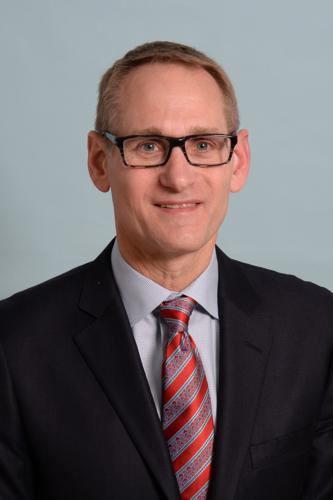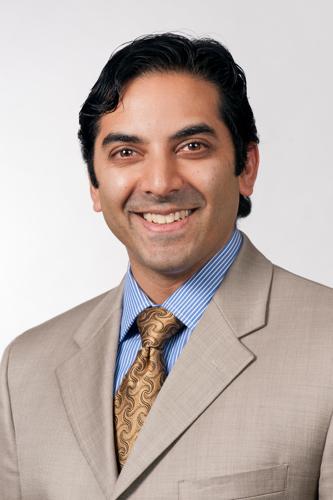Skull base tumors often require complex treatment from a multidisciplinary team. At the BMC Skull Base Surgery program, experts representing areas from neurosurgeons to dentists to endocrinologists work together to achieve the best possible outcomes and return to your life as quickly as possible.
Contact Us
Ground Floor
Moakley Building 617.638.8124
Monday-Friday - 7:30 AM - 5:00 PM

Treatments & Services
The skull base surgery program offers many treatment options to accomplish dual goals: to treat the patient's condition, and to achieve the highest quality of life.These treatments range from open procedures for more involved diseases, advanced minimally invasive endoscopic procedures, and non-invasive options, sometimes in combination, and all tailored to the patient's disease and treatment needs.
With so many options available, and many different diseases treated, each patient's treatment plan is customized based on a number of factors. This includes the location of the affected area or areas, the stage of the disease, and the person's age and general health. The team spends time with patients to discuss every step of the process, from workup, to treatment, and follow-up.
Because of the complexity of caring for these types of problems and wanting multi-disciplinary team input to offer patients the most comprehensive yet understandable options, the team meets to discuss each individual case in regular Head and Neck/Skull Base and Pituitary Multi-Disciplinary Conferences.
Observation
In some cases, observation is most warranted. For certain types of diseases, treatment may not be immediately necessary unless there are concerning symptoms or changes seen on examination or diagnostic testing. Appropriate monitoring of symptoms and the size, shape, and location of a patient's tumor, as well as quality of life assessments can all be a part of this process and in determining an individual's best course of care.
Endoscopic Skull Base Surgery
This is a type of skull base surgery that either doesn’t require any incisions, or, uses much smaller, hidden incisions than one would need for an open procedure to treat the same type of tumor. Using endoscopes (small cameras that see deep into the body), and special instruments designed for this type of surgery, tumors can be removed. In most cases, entry through the nostrils is enough to perform this delicate, complex surgery. Both cancerous and non-cancerous tumors can be removed in this way. This reduces recovery time as well as the length of time spent in the hospital, and gets a person back to their normal life very quickly. Not every patient is a candidate for endoscopic skull base surgery, but many patients benefit from this advanced surgical method.
Skull Base Surgery (Open Procedure)
BMC's skull base surgery team are experienced in doing what is called an "open procedure." This is a procedure by which tumors are removed using very carefully placed incisions along the face and/or skull to remove a tumor. This type of surgery often has good functional and cosmetic outcomes. Recovery time from open procedures are longer than with an endoscopic approach.
Minimally Invasive Surgery
In which your surgeon gains access using a series of small band-aid incisions, and performs the procedure with specially made surgical tools that are inserted through incisions.
Radiation Therapy
Radiation uses special equipment to deliver high-energy particles, such as x-rays, gamma rays, electron beams or protons, to kill or damage cancer cells. Radiation (also called radiotherapy, irradiation, or x-ray therapy) can be delivered internally through seed implantation or externally using linear accelerators (called external beam radiotherapy, or EBRT).
CyberKnife
CyberKnife delivers highly targeted beams of radiation directly into tumors, in a pain-free, non-surgical way. Guided by specialized imaging software, we can track and continually adjust treatment at any point in the body, and without the need for the head frames and other equipment that are needed for some other forms of radiosurgery.
Chemotherapy
Chemotherapy is a medication or combination of medications used to treat cancer. Chemotherapy can be given orally (as a pill) or injected intravenously (IV).
Palliative Care
When your loved one is admitted to the hospital and can benefit from our services, please request a consult through your primary team.
Diagnostics and Tests
The skull base surgery program utilizes state-of-the-art diagnostic tools. As part of the workup and follow-up, a patient may need to get bloodwork, x-rays, and other tests. These are important in determining the best way to treat each individual’s condition, and to watch for any problems afterward. Some of the tests that need to be obtained may include imaging tests, performed at BMC by experts in the department of radiology.
Tests like these and others are chosen based on the patient's needs, and after discussion with them about how these tests may impact their care. Every effort is made to accommodate a person’s specific needs in arranging and performing diagnostic tests.
Diagnostic Testing
The skull base surgery program utilizes state-of-the-art diagnostic tools. As part of the workup and follow-up, a patient may need to get bloodwork, x-rays, and other tests. These are important in determining the best way to treat each individual’s condition, and to watch for any problems afterward. Some of the tests that need to be obtained may include imaging tests, performed at BMC by experts in the department of radiology. Imaging tests can include
Tests like these and others are chosen based on the patient's needs, and after discussion with them about how these tests may impact their care. Every effort is made to accommodate a person’s specific needs in arranging and performing diagnostic tests.
Computed Tomography (CT) Scan
CT scans use x-ray equipment and computer processing to produce 2-dimensional images of the body. The patient lies on a table and passes through a machine that looks like a large, squared-off donut.
Positron Emission Tomography (PET) scan
A PET scan is used to detect cellular reactions to sugar. Abnormal cells tend to react and "light up" on the scan, thus helping physicians diagnose a variety of conditions. For the PET scan, a harmless chemical, called a radiotracer, is injected into your blood stream.
Our Team
The Skull Base Surgery Tumor Program surgeons have extensive experience and are respected internationally for their ability to treat head and neck tumors in this delicate and complex area.
Peter C Weber, MD

Anand K Devaiah, MD

Heather A Edwards, MD

Daniel L Faden, MD

James W Holsapple, MD, FAANS

